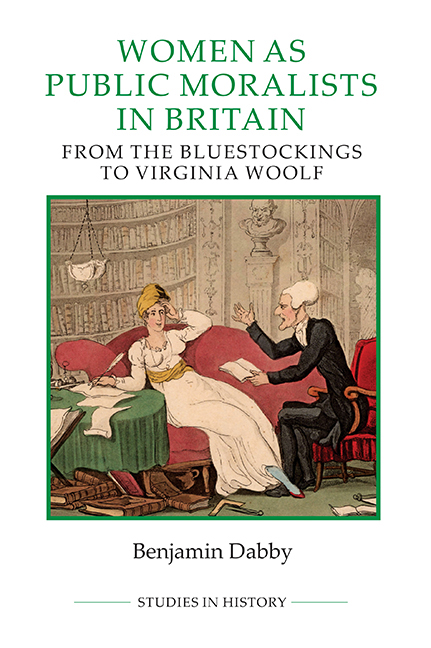Book contents
- Frontmatter
- Dedication
- Contents
- List of illustrations
- Acknowledgements
- Abbreviations
- Introduction
- PART I HISTORY AND THE PRESENT
- 1 Anna Jameson and the use of picturesque history
- 2 Hannah Lawrance and the claims of women's history
- 3 Margaret Oliphant and the lessons of eighteenth-century history
- PART II LITERATURE, ART AND LIFE
- PART III CHANGE AND CONTINUITY FROM THE FIN-DESIÈCLE TO MODERNITY
- The contexts of conclusions
- Bibliography
- Index
3 - Margaret Oliphant and the lessons of eighteenth-century history
from PART I - HISTORY AND THE PRESENT
Published online by Cambridge University Press: 25 October 2017
- Frontmatter
- Dedication
- Contents
- List of illustrations
- Acknowledgements
- Abbreviations
- Introduction
- PART I HISTORY AND THE PRESENT
- 1 Anna Jameson and the use of picturesque history
- 2 Hannah Lawrance and the claims of women's history
- 3 Margaret Oliphant and the lessons of eighteenth-century history
- PART II LITERATURE, ART AND LIFE
- PART III CHANGE AND CONTINUITY FROM THE FIN-DESIÈCLE TO MODERNITY
- The contexts of conclusions
- Bibliography
- Index
Summary
The career of Margaret Oliphant (1828–97) illustrates how a woman could enter the world of letters at mid-century, accrue cultural authority and write on the lessons of history. Born in the Scottish Lowlands a generation after Anna Jameson and Hannah Lawrance, Oliphant's prodigious career extended over several genres. As well as becoming the unrivalled critic of history, fiction and art at Blackwood's Edinburgh Magazine from 1854 until her death in 1897, she was also a prolific novelist, biographer, historian, translator and author of several literary histories. Her work as an historian has received little scholarly attention, despite her articles on history written in the 1850s, and her biographical sketches of eighteenth-century figures in the 1860s, which are the subject of this chapter. A plaque unveiled in 1908 at St Giles’ Cathedral, the High Kirk of Edinburgh, commemorates her as a ‘novelist, biographer, essayist and historian’, illustrating that the typical twentieth-century canonisation of Oliphant identified her as an historian last of all. Only Elisabeth Jay has shown that Oliphant saw a benefit in historical women's perspective on society, and how she used the history of eighteenth-century women to argue that gender was a product of nurture rather than nature.
Oliphant argued against limiting gender stereotypes in the Historical sketches of the reign of George Second (1869), which were serialised originally in Blackwood's over the course of 1868–9. The sketches were of twelve eighteenthcentury figures: Queen Caroline, wife of George ii, Sir Robert Walpole, Philip Dormer Stanhope (4th earl of Chesterfield), Lady Mary Wortley Montagu, Alexander Pope, Bonnie Prince Charlie, John Wesley, Admiral George Anson, George Berkeley, Samuel Richardson, David Hume and William Hogarth. Oliphant used these biographies to argue that gender was constructed and she also painted a new picture of British society in the eighteenth century, in which men and women celebrated their intellectual equality and shared the responsibility for social improvement. Oliphant's use of history was driven by similar agenda to those of Hannah Lawrance and Anna Jameson before her: all three women argued for women's access to education and wider employment, and all three believed that this was a precondition of a better society. However, even though Lawrance and Jameson wrote for liberal reading publics, they avoided writing about Britain's eighteenth-century bluestocking culture for fear of alienating their readers.
- Type
- Chapter
- Information
- Women as Public Moralists in BritainFrom the Bluestockings to Virginia Woolf, pp. 71 - 94Publisher: Boydell & BrewerPrint publication year: 2017

